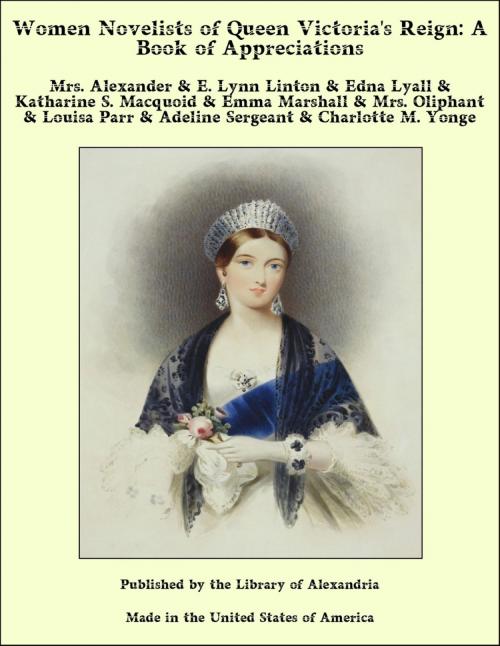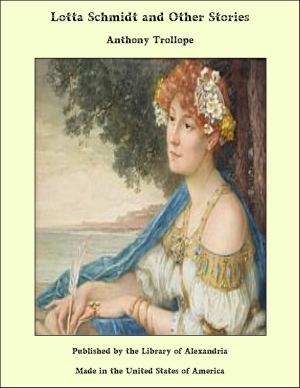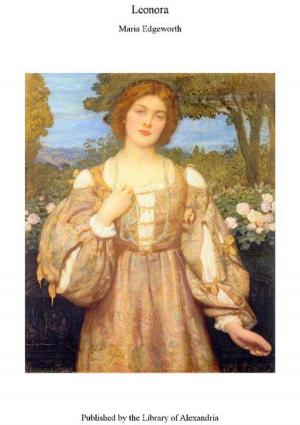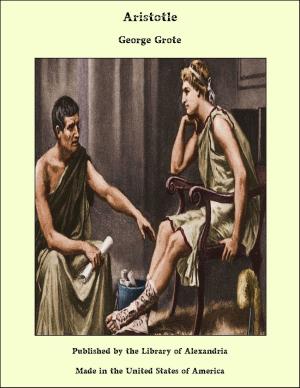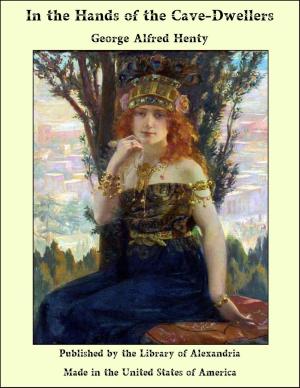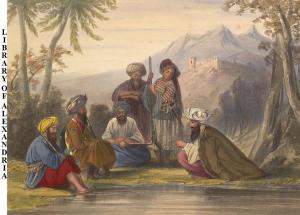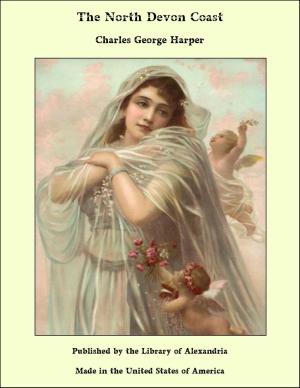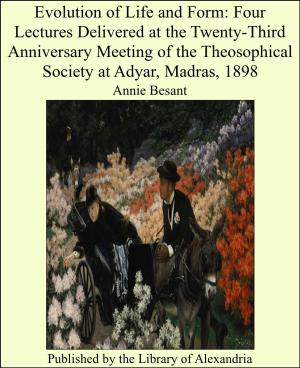Women Novelists of Queen Victoria's Reign: A Book of Appreciations
Nonfiction, Religion & Spirituality, New Age, History, Fiction & Literature| Author: | Mrs. Alexander & E. Lynn Linton & Edna Lyall & Katharine S. Macquoid & Emma Marshall & Mrs. Oliphant & Louisa Parr & Adeline Sergeant & Charlotte M. Yonge | ISBN: | 9781465613738 |
| Publisher: | Library of Alexandria | Publication: | March 8, 2015 |
| Imprint: | Language: | English |
| Author: | Mrs. Alexander & E. Lynn Linton & Edna Lyall & Katharine S. Macquoid & Emma Marshall & Mrs. Oliphant & Louisa Parr & Adeline Sergeant & Charlotte M. Yonge |
| ISBN: | 9781465613738 |
| Publisher: | Library of Alexandria |
| Publication: | March 8, 2015 |
| Imprint: | |
| Language: | English |
The effect produced upon the general mind by the appearance of Charlotte Brontë in literature, and afterwards by the record of her life when that was over, is one which it is nowadays somewhat difficult to understand. Had the age been deficient in the art of fiction, or had it followed any long level of mediocrity in that art, we could have comprehended this more easily. But Charlotte Brontë appeared in the full flush of a period more richly endowed than any other we know of in that special branch of literature, so richly endowed, indeed, that the novel had taken quite fictitious importance, and the names of Dickens and Thackeray ranked almost higher than those of any living writers except perhaps Tennyson, then young and on his promotion too. Anthony Trollope and Charles Reade who, though in their day extremely popular, have never had justice from a public which now seems almost to have forgotten them, formed a powerful second rank to these two great names. It is a great addition to the value of the distinction gained by the new comer that it was acquired in an age so rich in the qualities of the imagination. But this only increases the wonder of a triumph which had no artificial means to heighten it, nothing but genius on the part of a writer possessing little experience or knowledge of the world, and no sort of social training or adventitious aid. The genius was indeed unmistakable, and possessed in a very high degree the power of expressing itself in the most vivid and actual pictures of life. But the life of which it had command was seldom attractive, often narrow, local, and of a kind which meant keen personal satire more than any broader view of human existence. A group of commonplace clergymen, intense against their little parochial background as only the most real art of portraiture, intensified by individual scorn and dislike, could have made them: the circle of limited interests, small emulations, keen little spites and rancours, filling the atmosphere of a great boarding school, the BrusselsPensionnat des filles—these were the two spheres chiefly portrayed: but portrayed with an absolute untempered force which knew neither charity, softness, nor even impartiality, but burned upon the paper and made everything round dim in the contrast. I imagine it was this extraordinary naked force which was the great cause of a success, never perhaps like the numerical successes in literature of the present day, when edition follows edition, and thousand thousand, of the books which are the favourites of the public: but one which has lived and lasted through nearly half a century, and is even now potent enough to carry on a little literature of its own, book after book following each other not so much to justify as to reproclaim and echo to all the winds the fame originally won. No one else of the century, I think, has called forth this persevering and lasting homage.
The effect produced upon the general mind by the appearance of Charlotte Brontë in literature, and afterwards by the record of her life when that was over, is one which it is nowadays somewhat difficult to understand. Had the age been deficient in the art of fiction, or had it followed any long level of mediocrity in that art, we could have comprehended this more easily. But Charlotte Brontë appeared in the full flush of a period more richly endowed than any other we know of in that special branch of literature, so richly endowed, indeed, that the novel had taken quite fictitious importance, and the names of Dickens and Thackeray ranked almost higher than those of any living writers except perhaps Tennyson, then young and on his promotion too. Anthony Trollope and Charles Reade who, though in their day extremely popular, have never had justice from a public which now seems almost to have forgotten them, formed a powerful second rank to these two great names. It is a great addition to the value of the distinction gained by the new comer that it was acquired in an age so rich in the qualities of the imagination. But this only increases the wonder of a triumph which had no artificial means to heighten it, nothing but genius on the part of a writer possessing little experience or knowledge of the world, and no sort of social training or adventitious aid. The genius was indeed unmistakable, and possessed in a very high degree the power of expressing itself in the most vivid and actual pictures of life. But the life of which it had command was seldom attractive, often narrow, local, and of a kind which meant keen personal satire more than any broader view of human existence. A group of commonplace clergymen, intense against their little parochial background as only the most real art of portraiture, intensified by individual scorn and dislike, could have made them: the circle of limited interests, small emulations, keen little spites and rancours, filling the atmosphere of a great boarding school, the BrusselsPensionnat des filles—these were the two spheres chiefly portrayed: but portrayed with an absolute untempered force which knew neither charity, softness, nor even impartiality, but burned upon the paper and made everything round dim in the contrast. I imagine it was this extraordinary naked force which was the great cause of a success, never perhaps like the numerical successes in literature of the present day, when edition follows edition, and thousand thousand, of the books which are the favourites of the public: but one which has lived and lasted through nearly half a century, and is even now potent enough to carry on a little literature of its own, book after book following each other not so much to justify as to reproclaim and echo to all the winds the fame originally won. No one else of the century, I think, has called forth this persevering and lasting homage.
